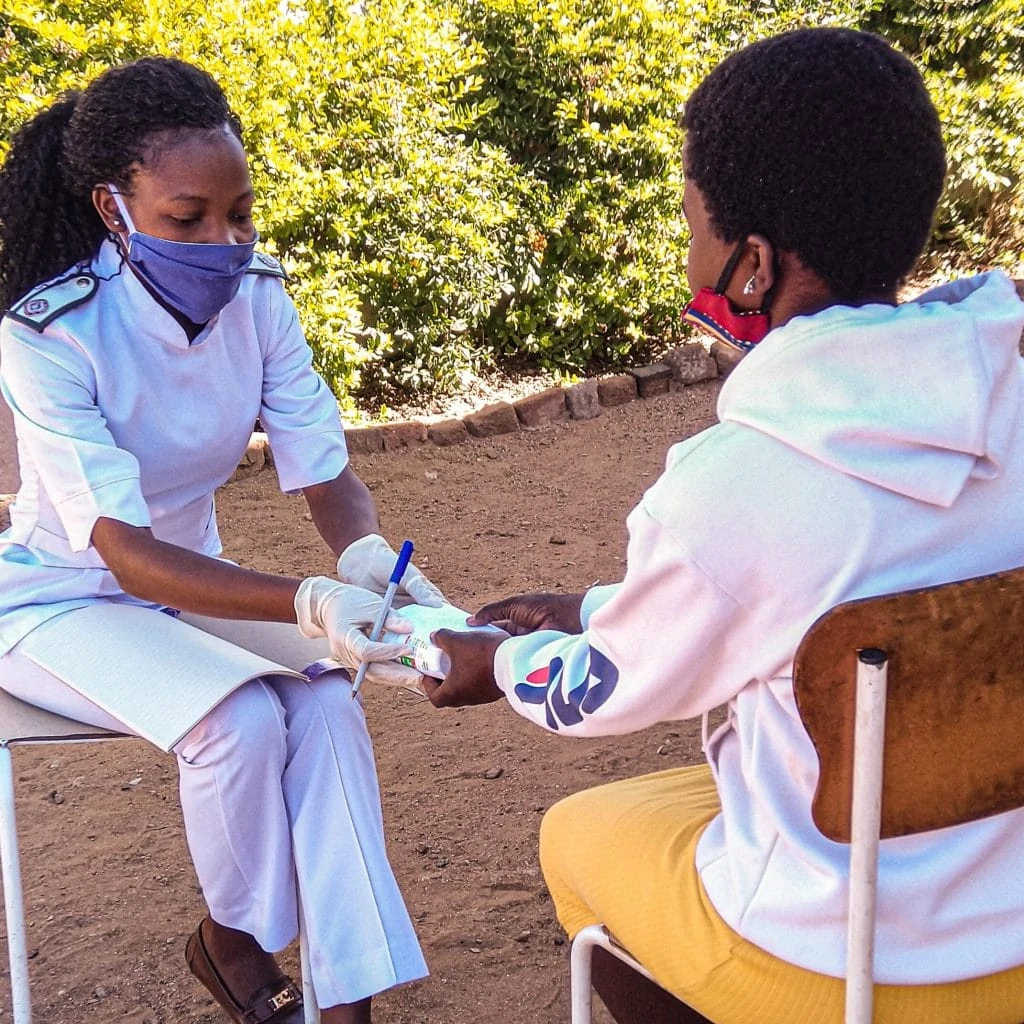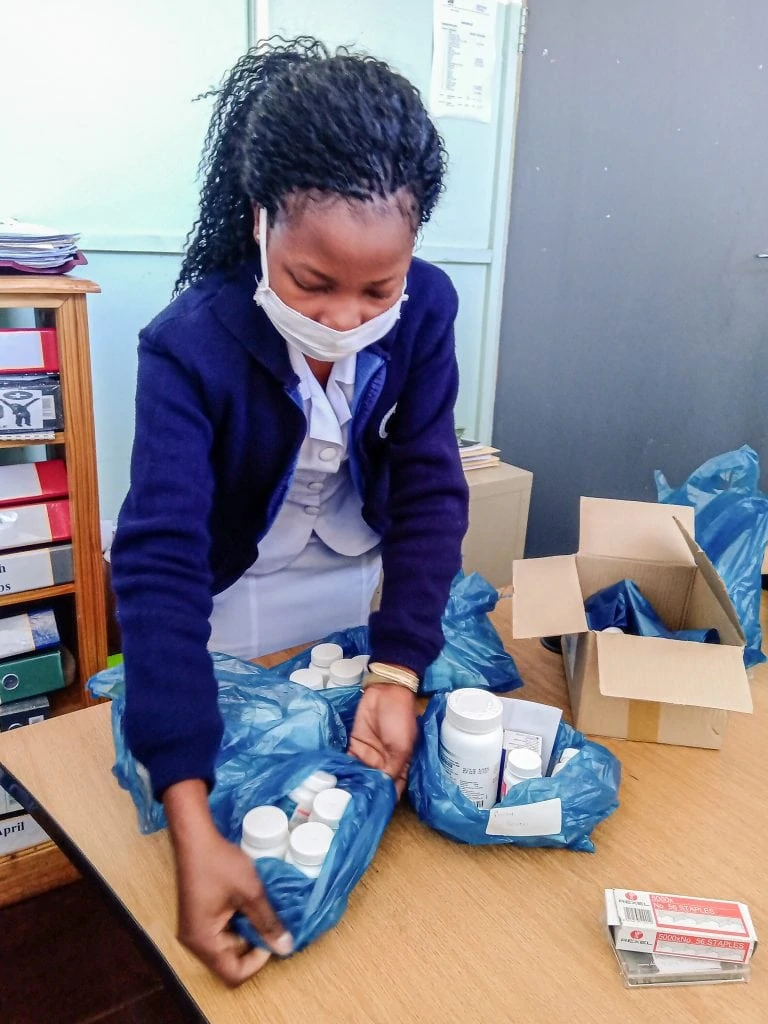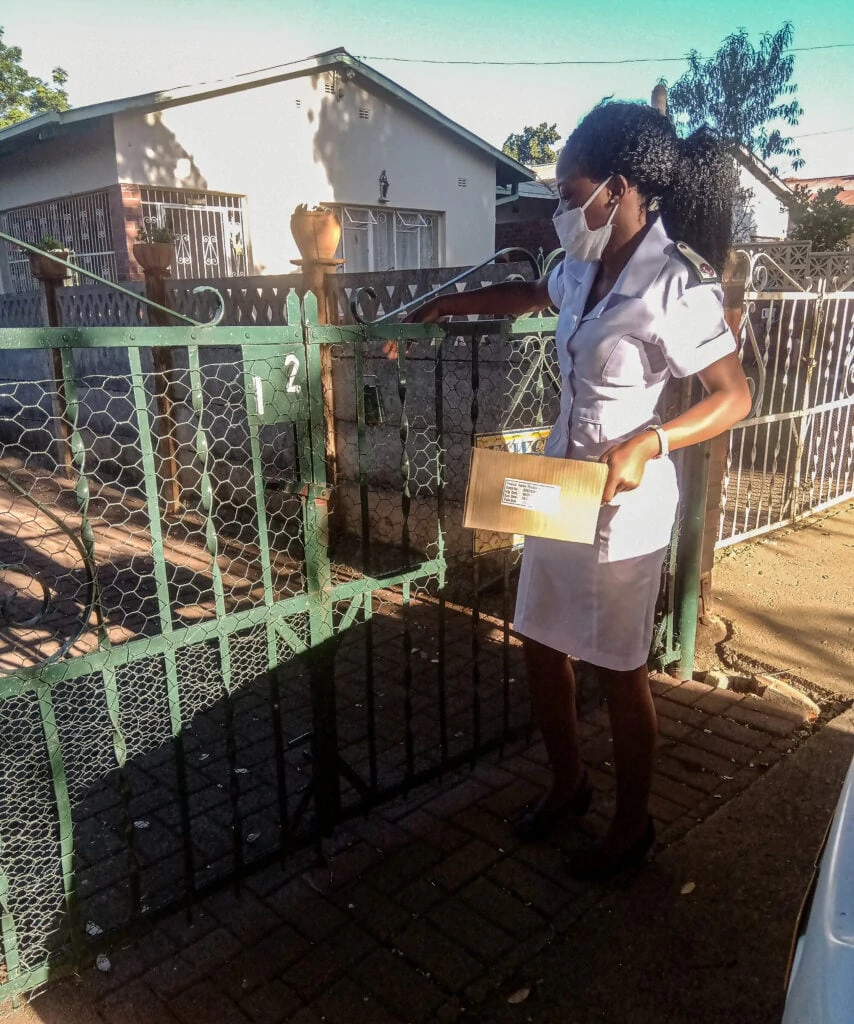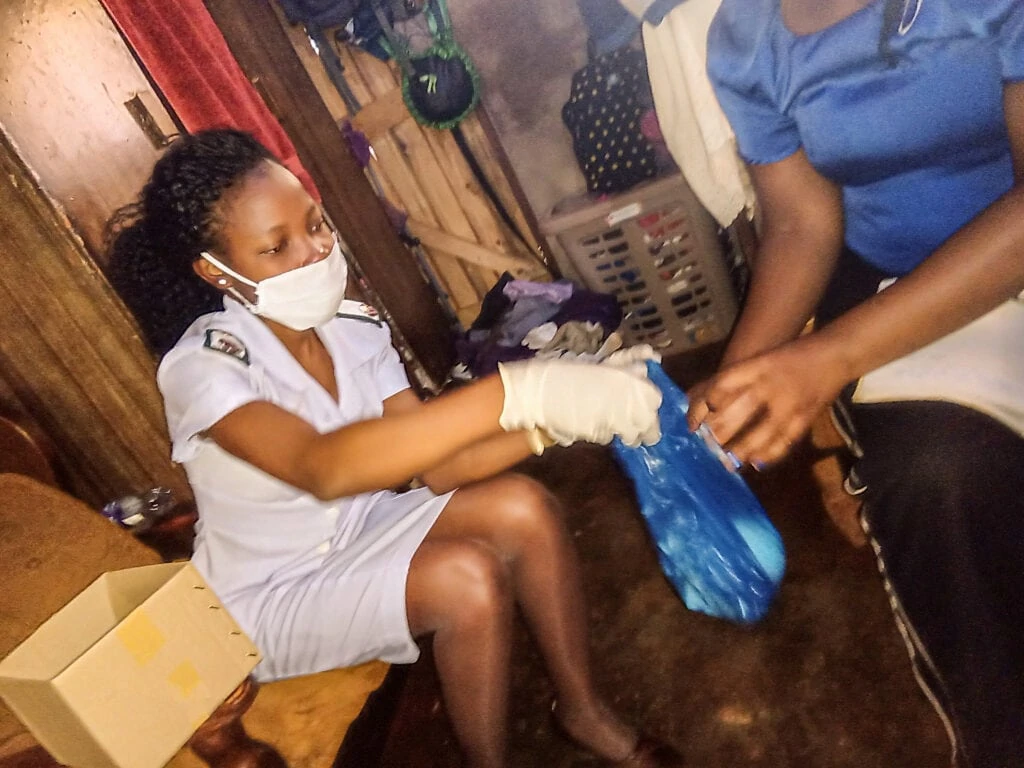Zimbabwe has a general curfew. Although it is less strictly enforced there is considered to be more difficult than in neighbouring South Africa, the majority of the population is unable to get through the police roadblocks. Many HIV-positive children and adolescents are therefore unable to obtain their essential medicines. Our partners at MMPZ have become active and have set up a delivery service.
Without the drugs that suppress the HI virus in his body, it can become dangerous for Marvelous. If he doesn't take them daily, the virus can become stronger and weaken the immune system. There is a risk of long-term health problems.
He'd have to go to the nearest hospital to get the medication. But this is forbidden and whoever ignores the ban risks a fine or worse. The police have set up police barriers everywhere, Marvelous cannot get past them.
People with an immune deficiency, as is the case with HIV/AIDS, have a significantly higher risk of dying from Covid-19. In Zimbabwe, 1.3 million people live with HIV/AIDS - many of them children and young people.
Practical help in lockdown
Under normal circumstances, our Partner of MMPZ them to take the medication despite the stigmata and hopelessness. Now, in lockdown, other practical help is needed. Together with the local clinic management, our partners were able to obtain the necessary passes to set up a delivery service.
Employees of the clinic and MMPZ are now putting together the medication and bringing the plastic bags home to the young patients. So that youngsters like Marvelous can also receive the essential medicines during the lockdown.
With this commitment, our partners will be able to slightly reduce the damage caused by the lockdown among HIV-positive people - even before the pandemic has reached its peak. Officially, to date only in 174 among the 14 million inhabitants. According to authorities, only four people have died of the disease so far.
Peak in August or September
However, these figures are unlikely to reflect reality. A week ago, the number of tests carried out was still around 35,000, as "All Africa" writes. Too little to draw a clear picture of the situation. There are good reasons to assume that the number of unreported cases is significantly higher.
"Already now, significantly more deaths due to malaria have been reported than in previous years. However, it is doubtful that these are exclusively malaria deaths," says Hafid Derbal, the coordinator for Zimbabwe and South Africa.
Only the legal returnees from South Africa and Botswana are tested relatively consistently. With the results of these tests alone, the number of infections has doubled to the current level in the last few days. However, many cross the border illegally and could thus contribute to the virus spreading even faster in the country.
An end to the situation is not in sight for a long time. Even if forecasts for Zimbabwe are extremely difficult, international actors in Zimbabwe expect the corona crisis to peak in August or September.
It is to be hoped that the pandemic in Africa will be milder than feared. For the time being, Zimbabwe remains in lockdown for an indefinite period of time and HIV-positive people like Marvelous thus remain dependent on the delivery service of our partners.
Read more about the situation in Zimbabwe in our current magazine.





